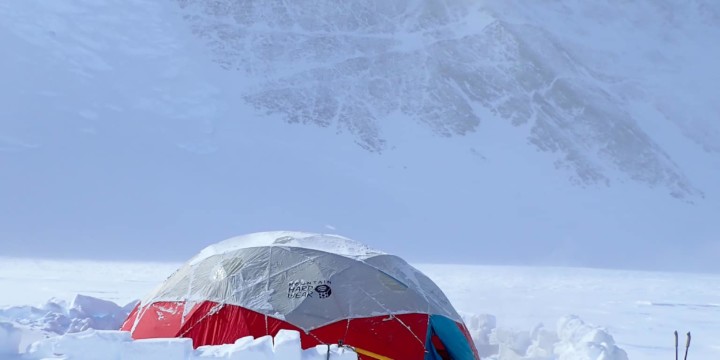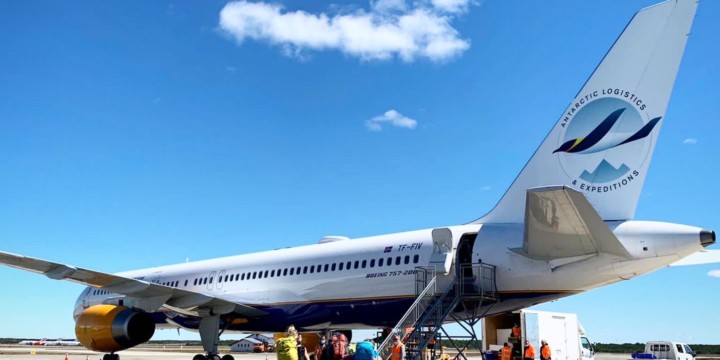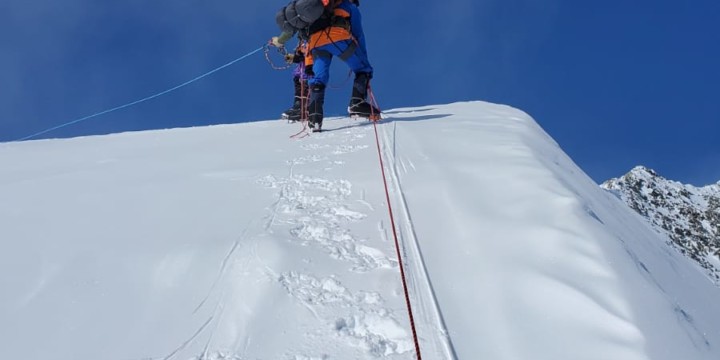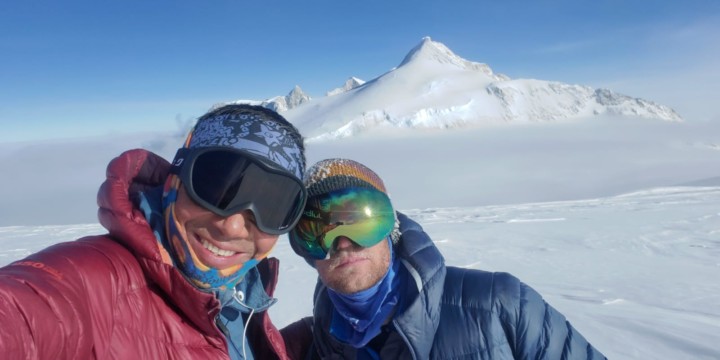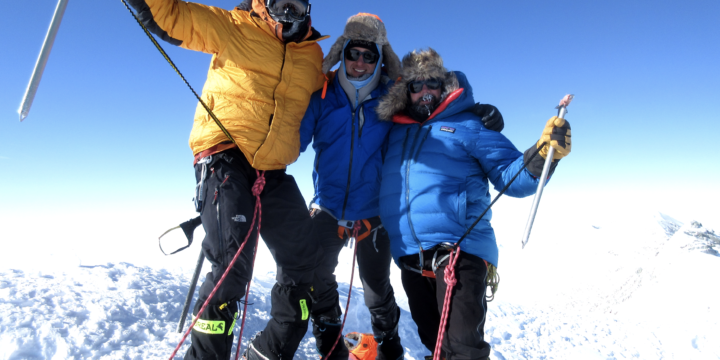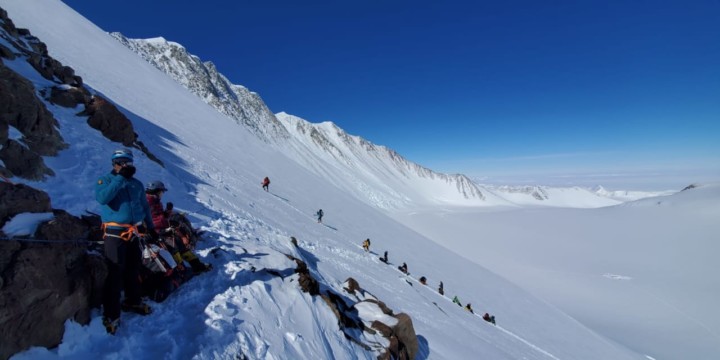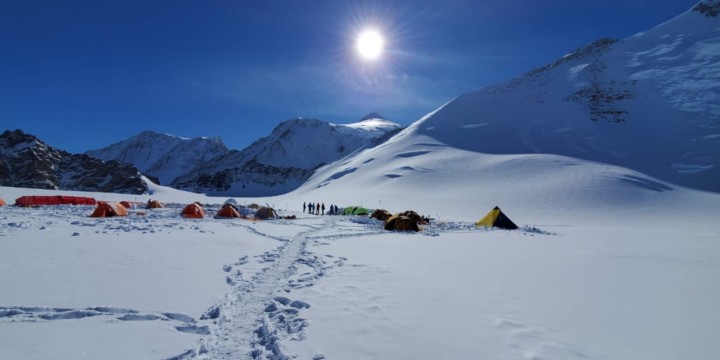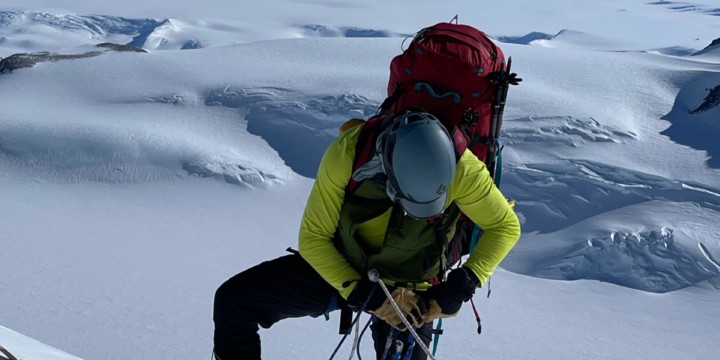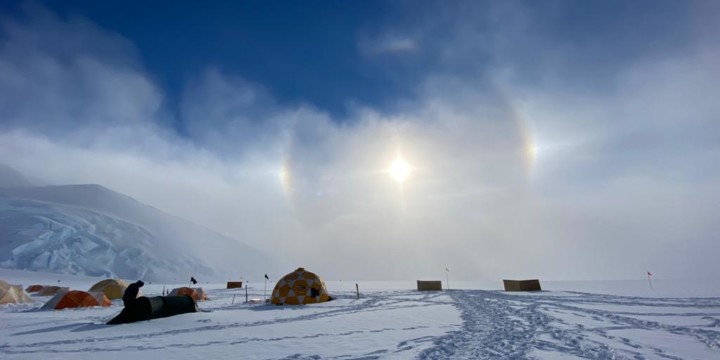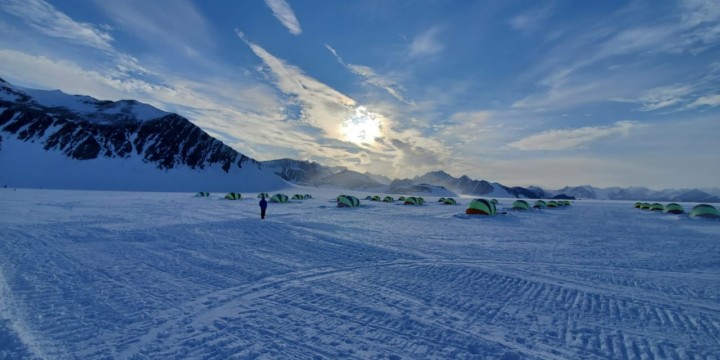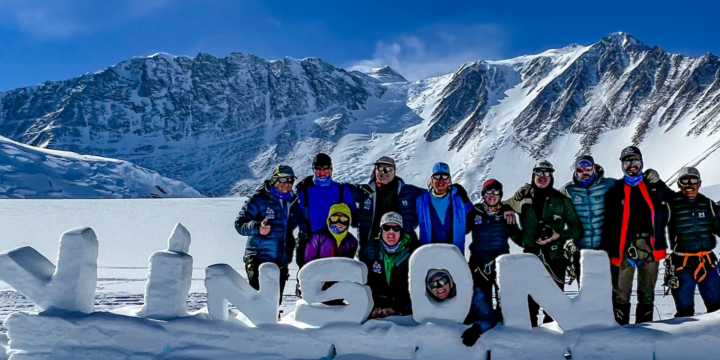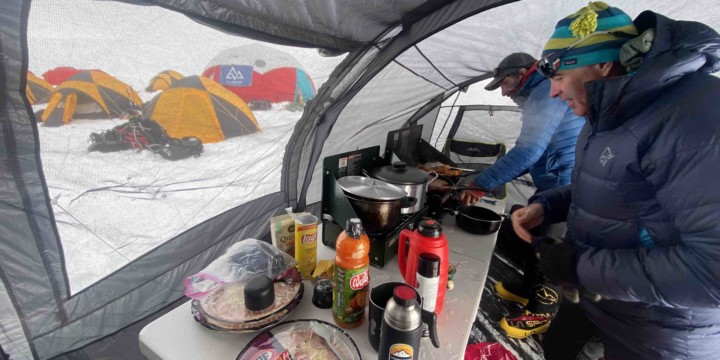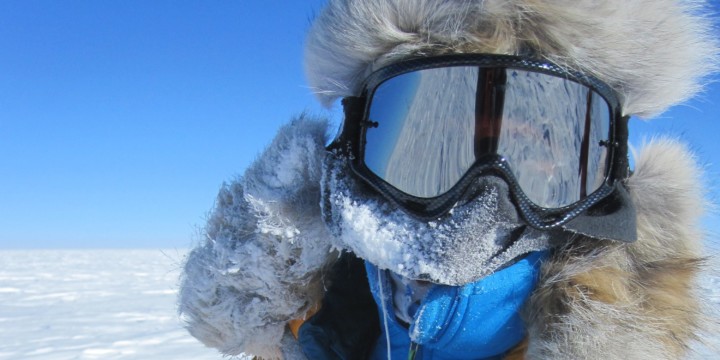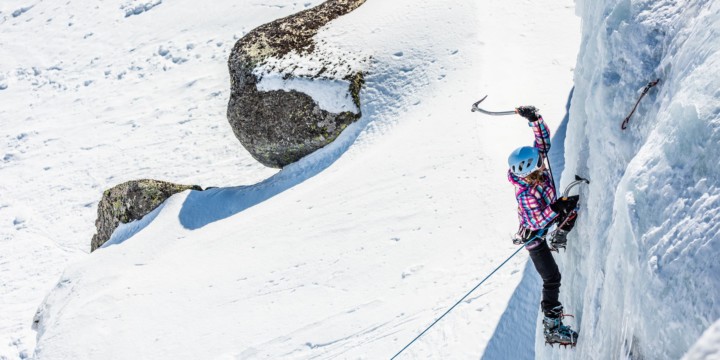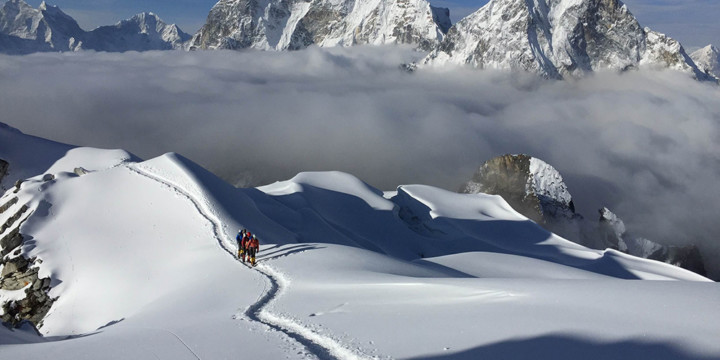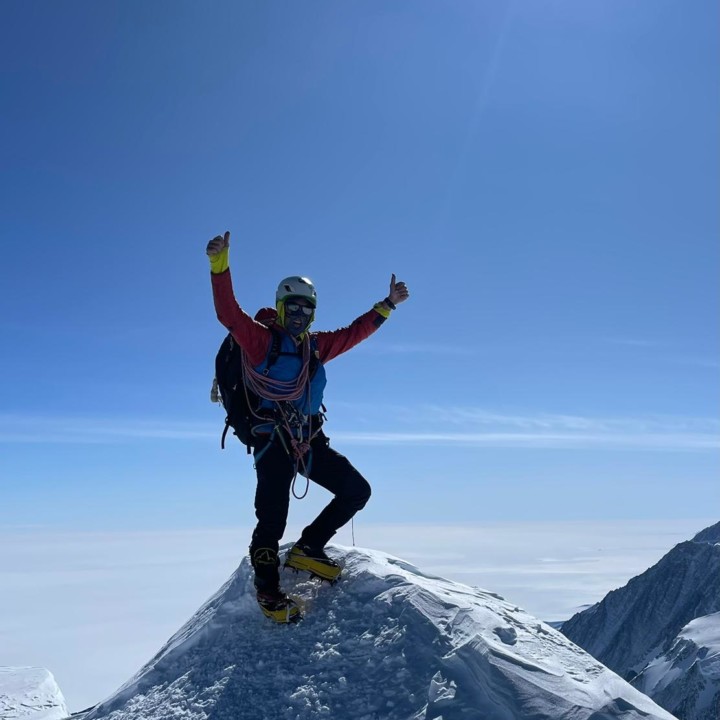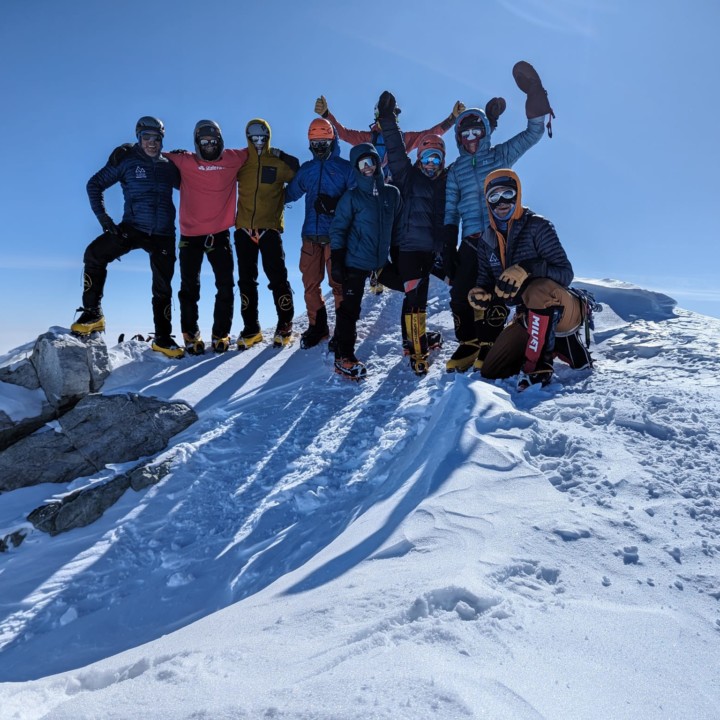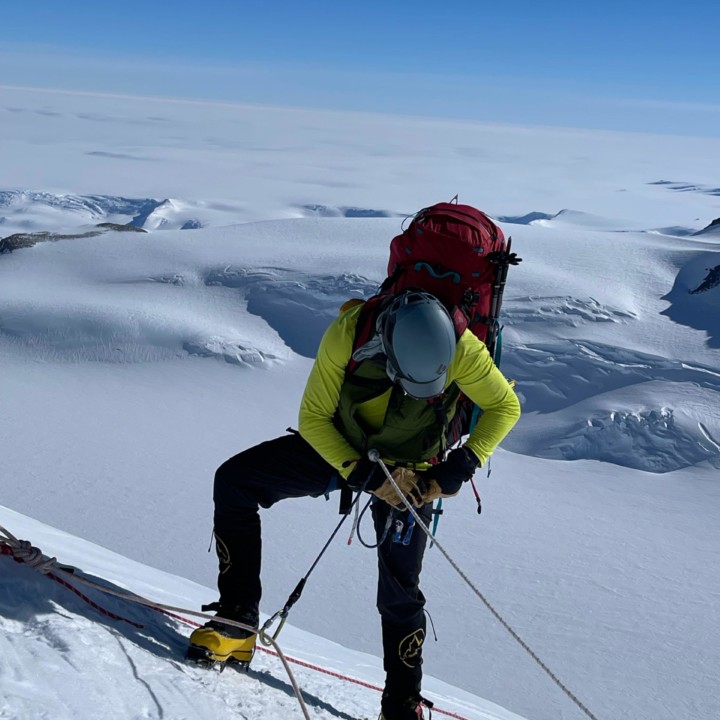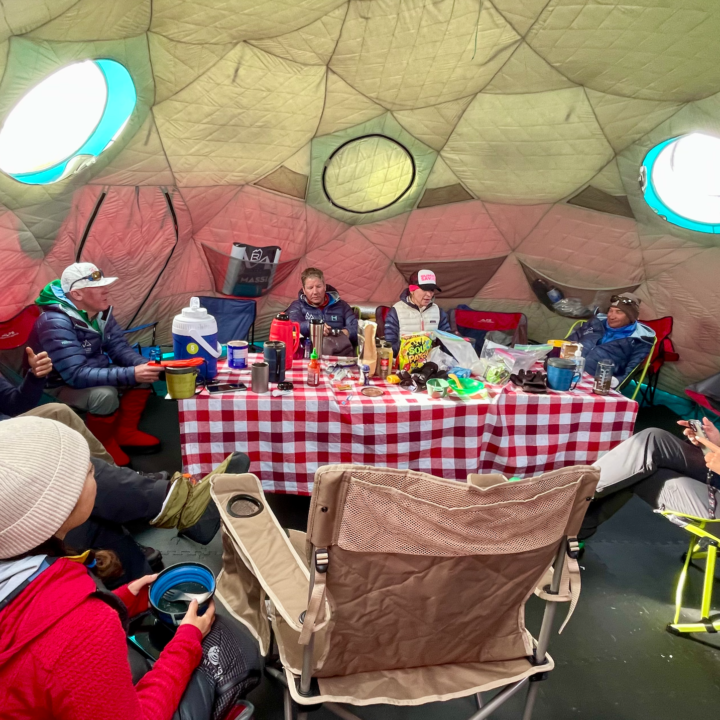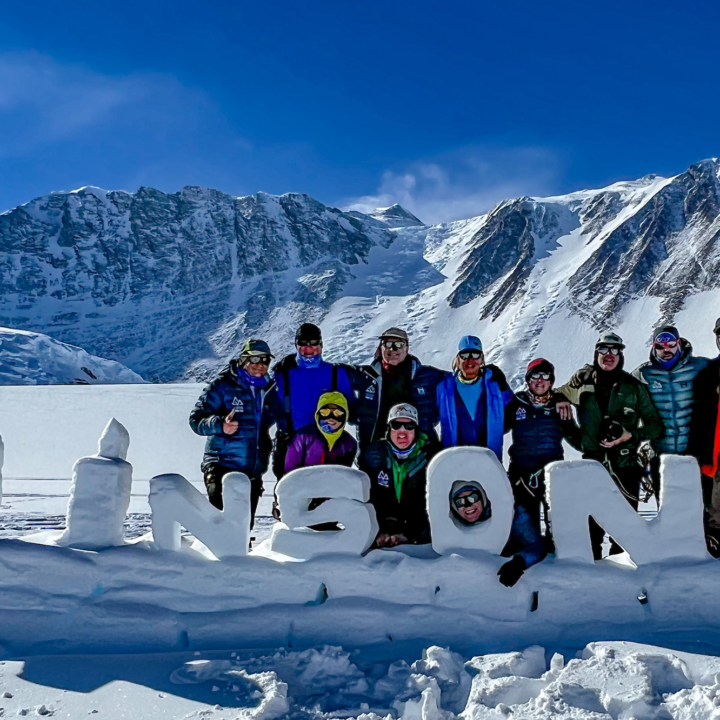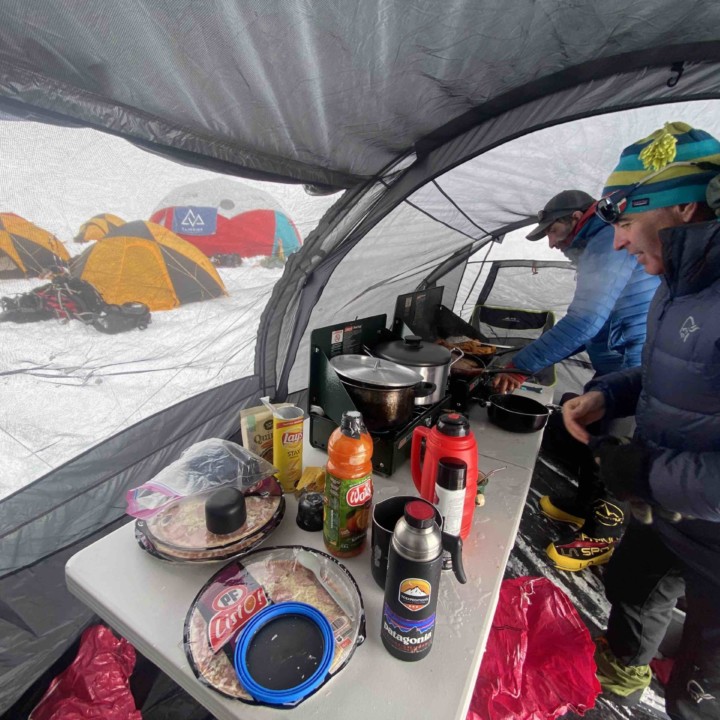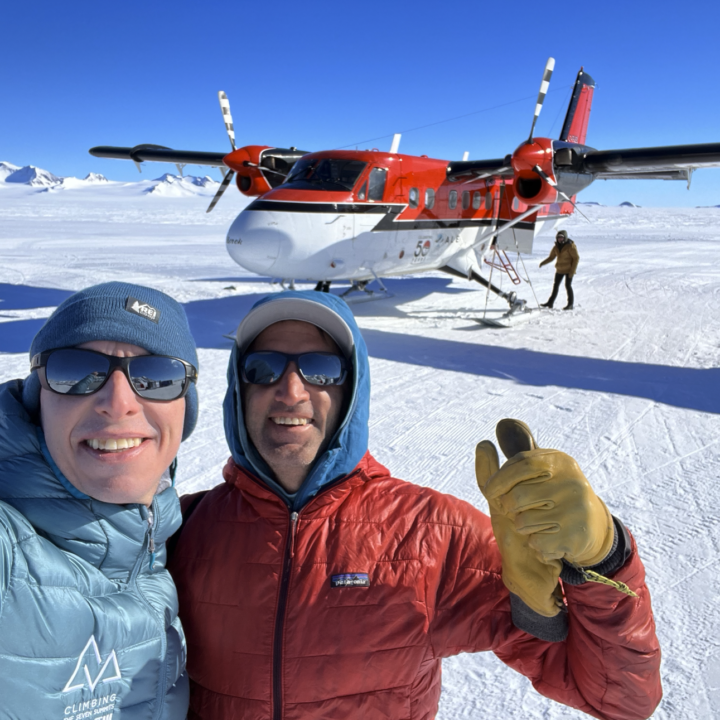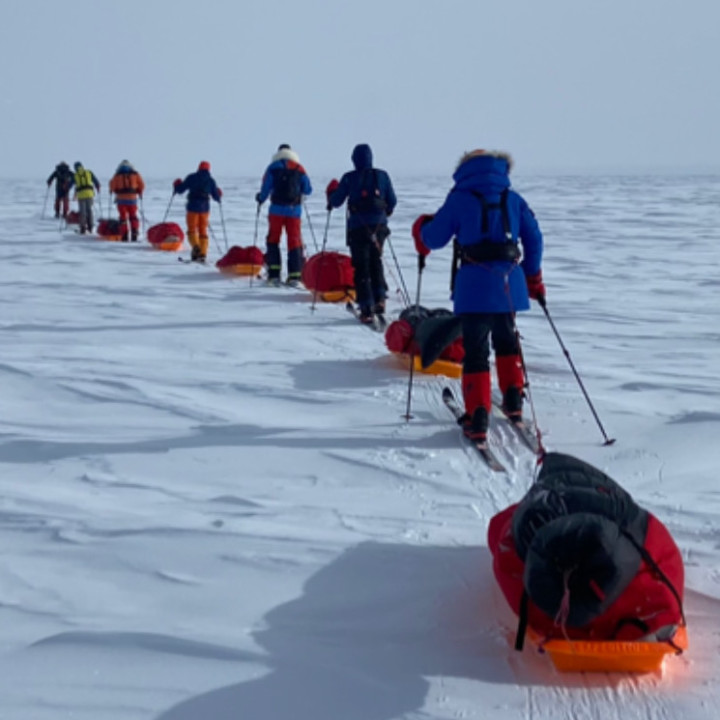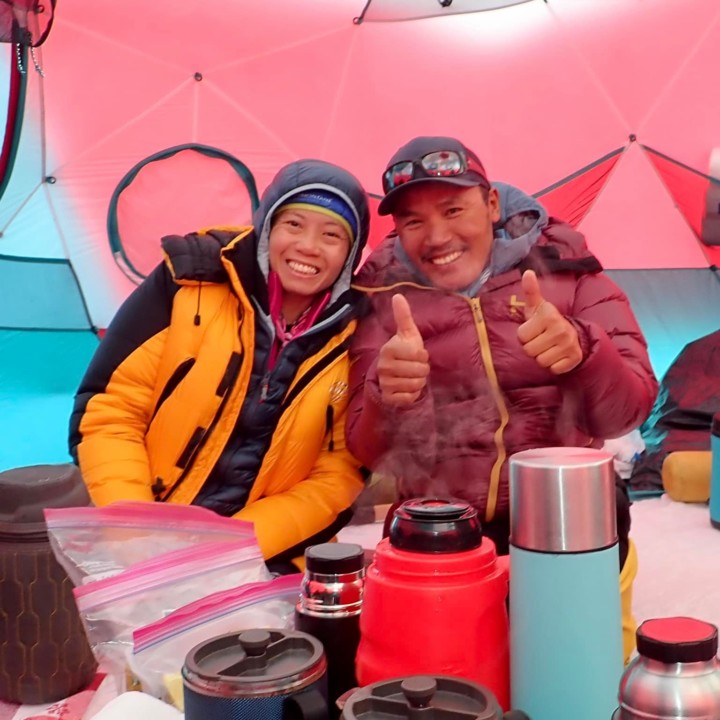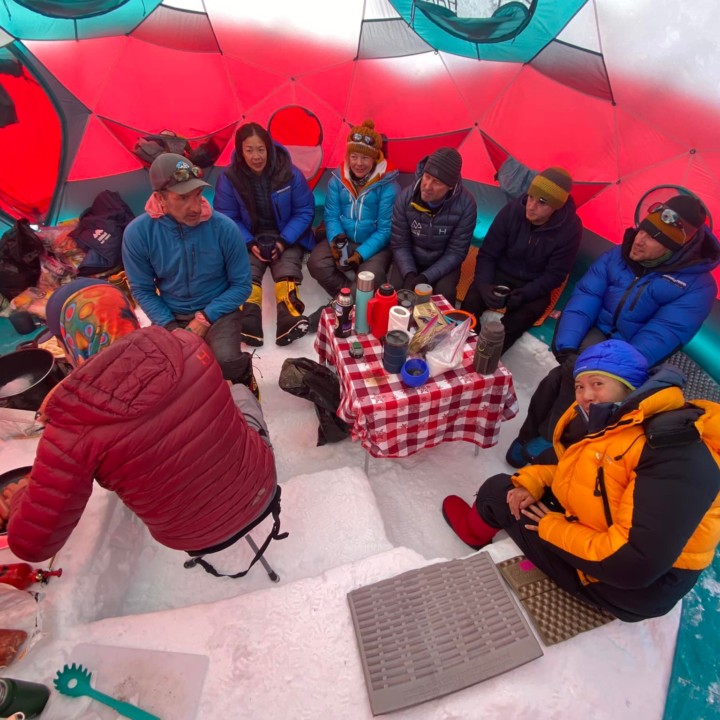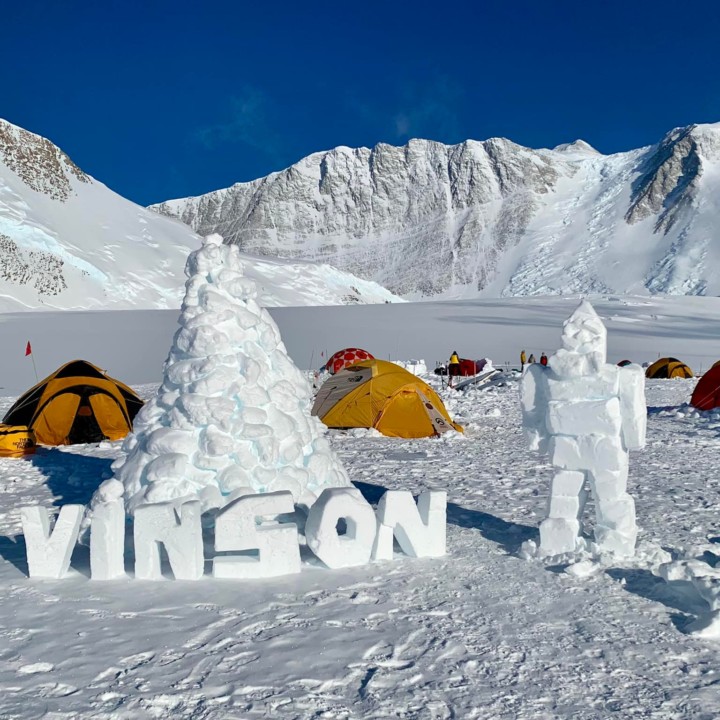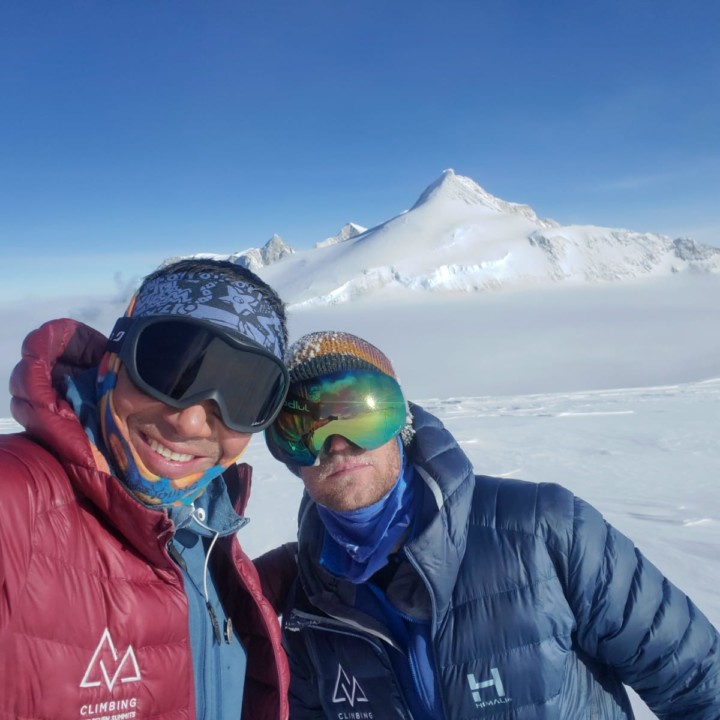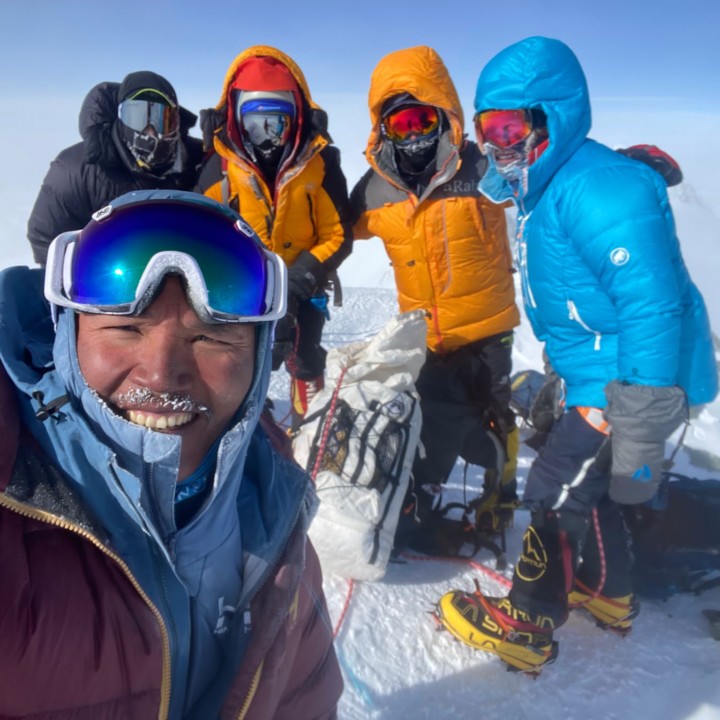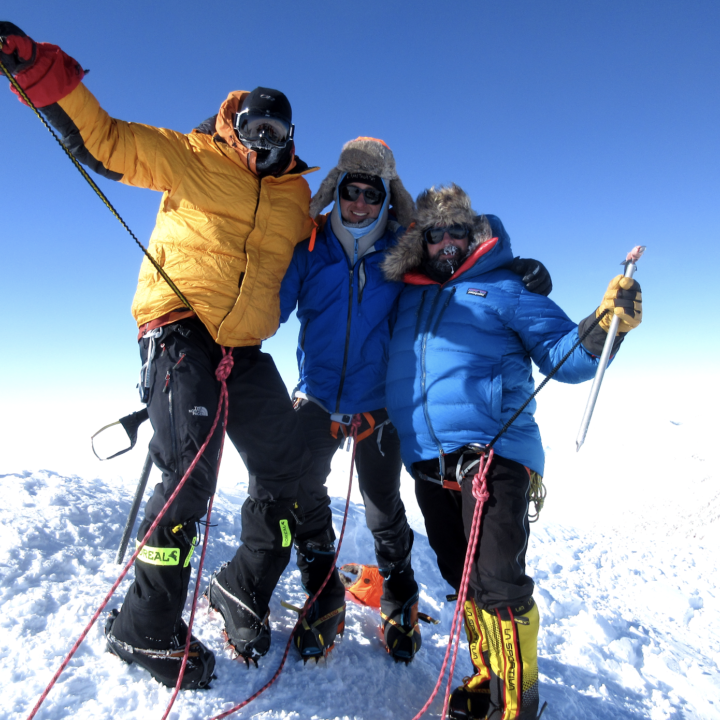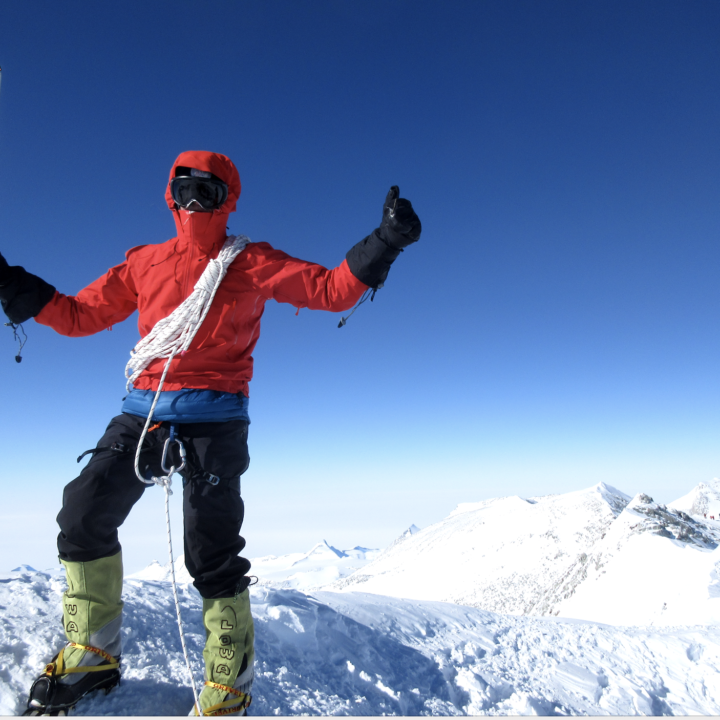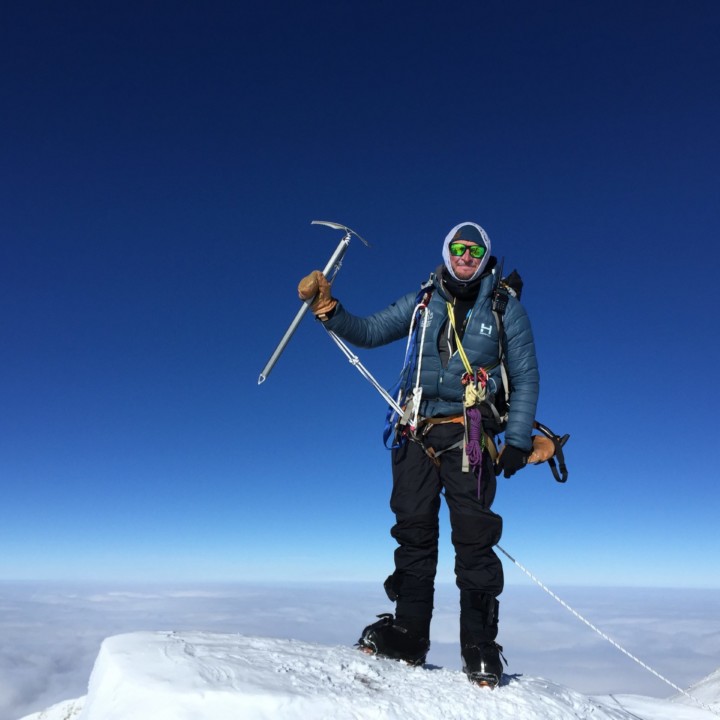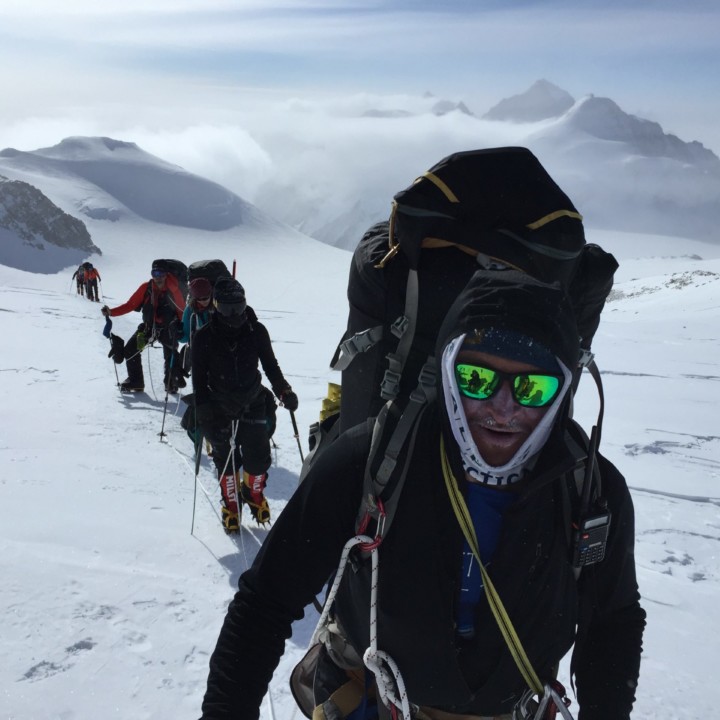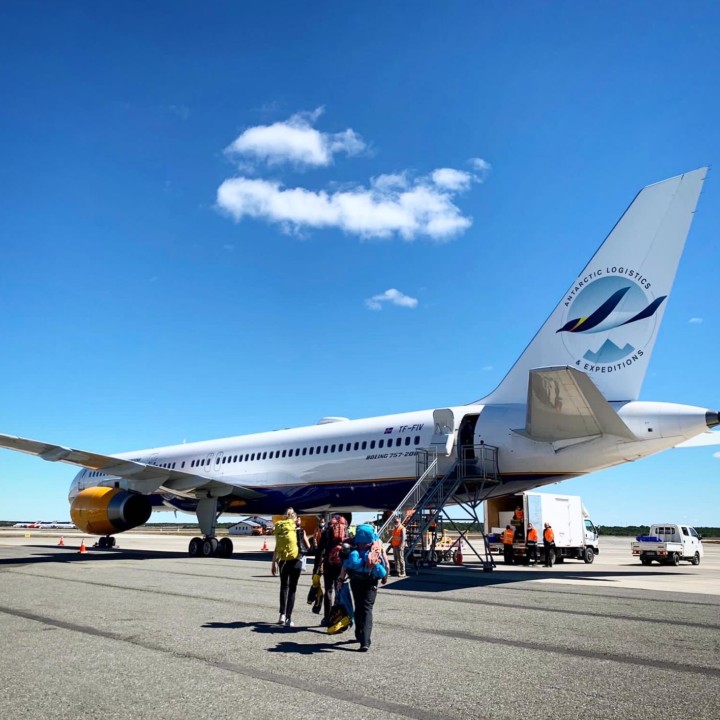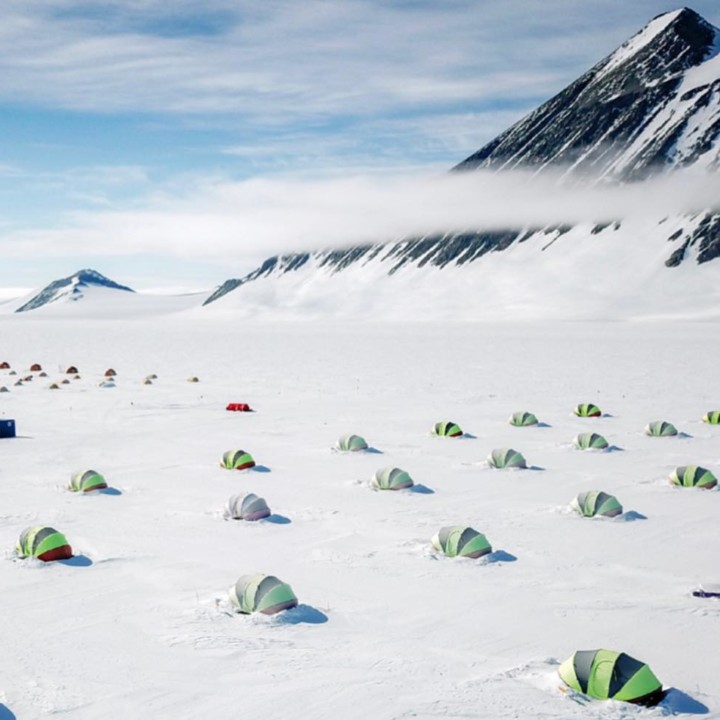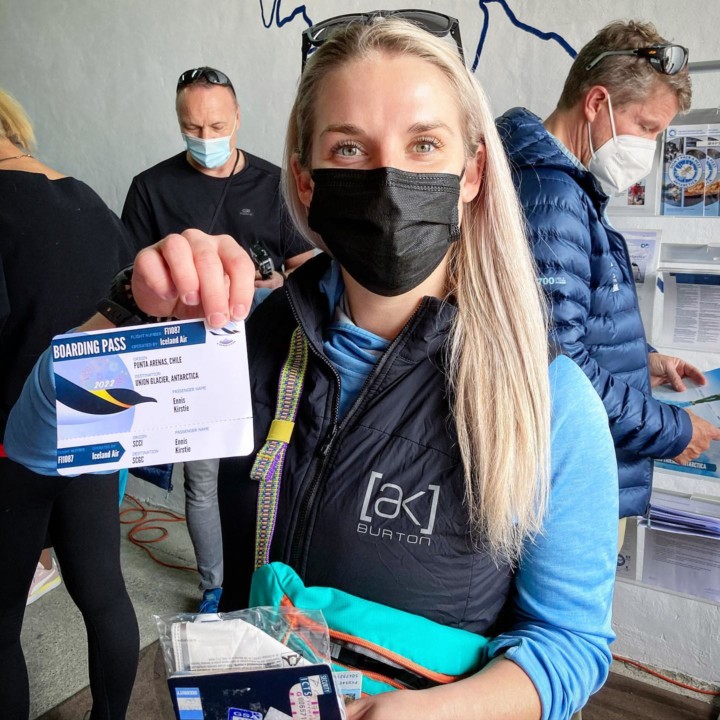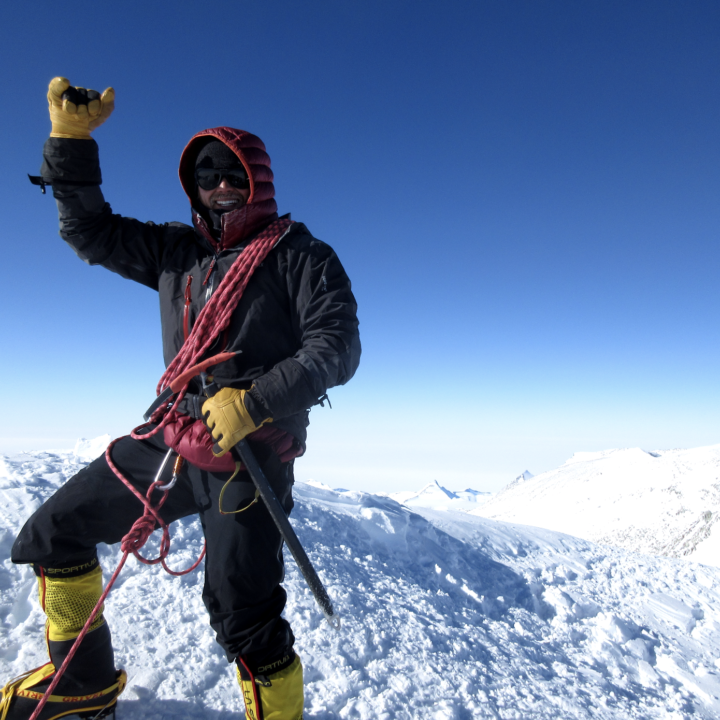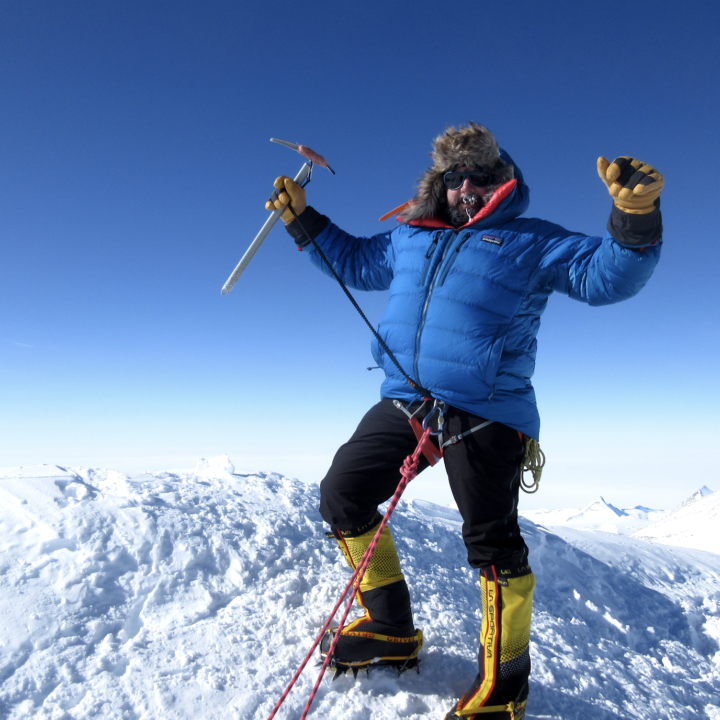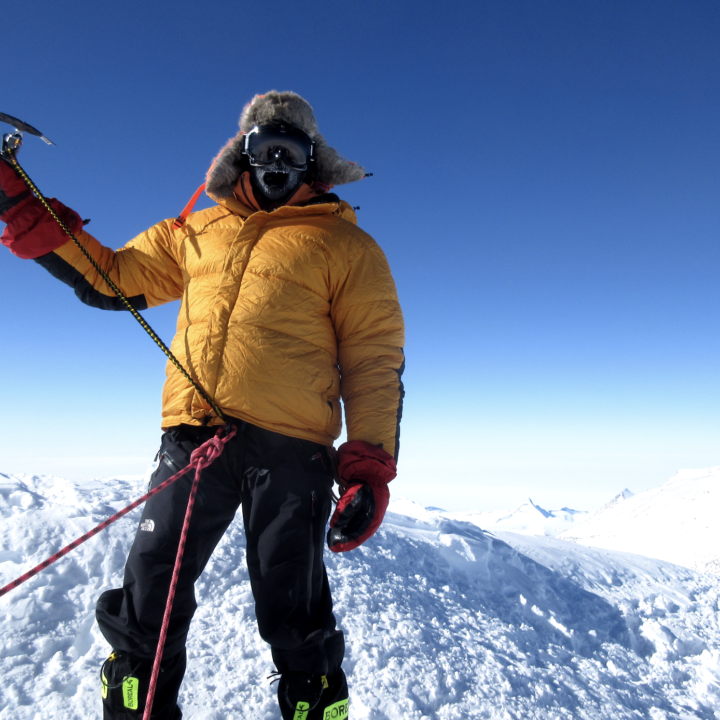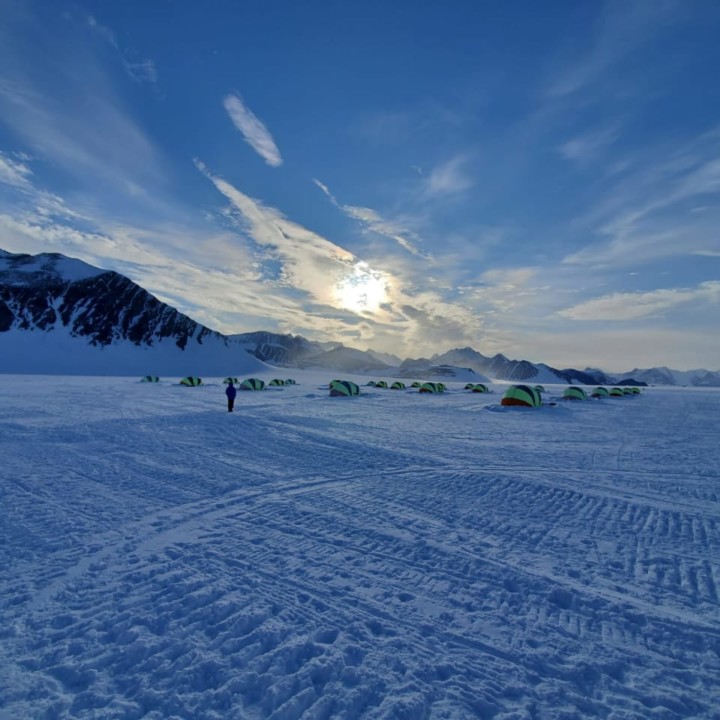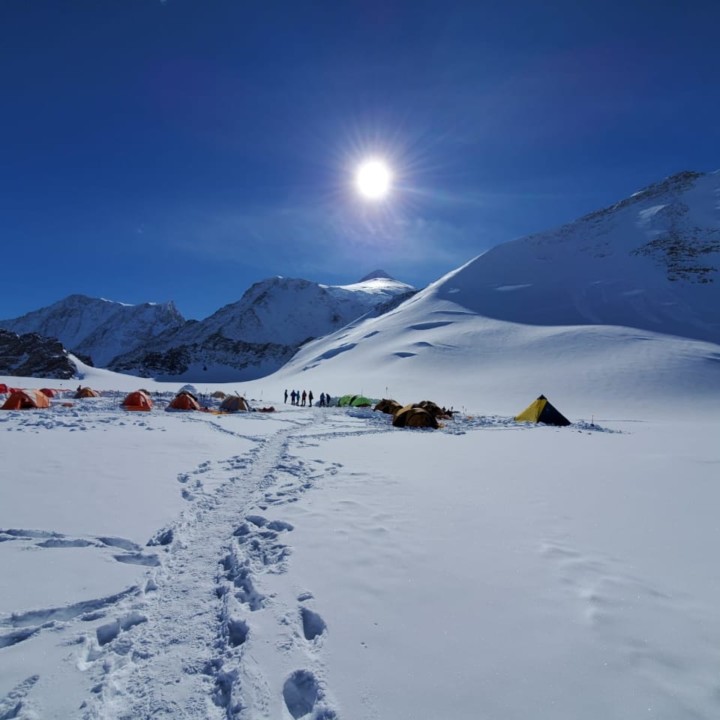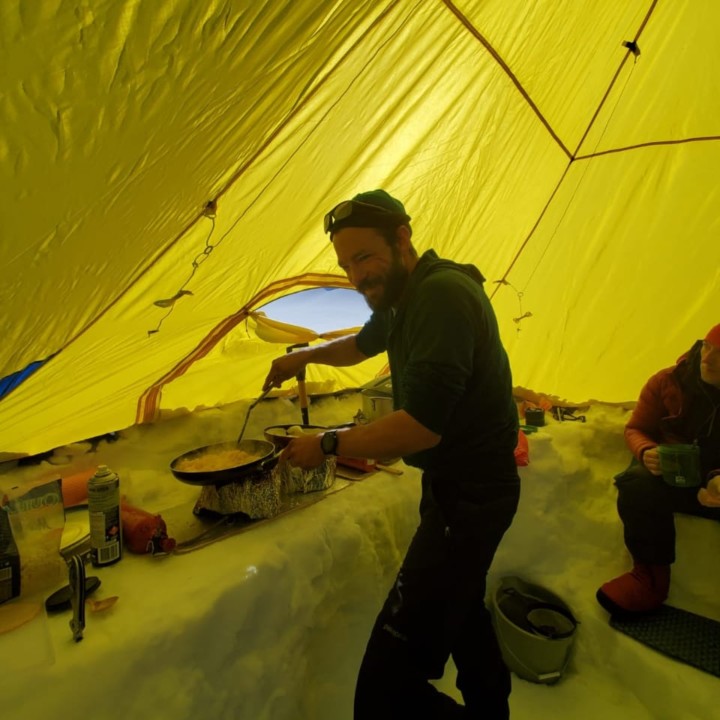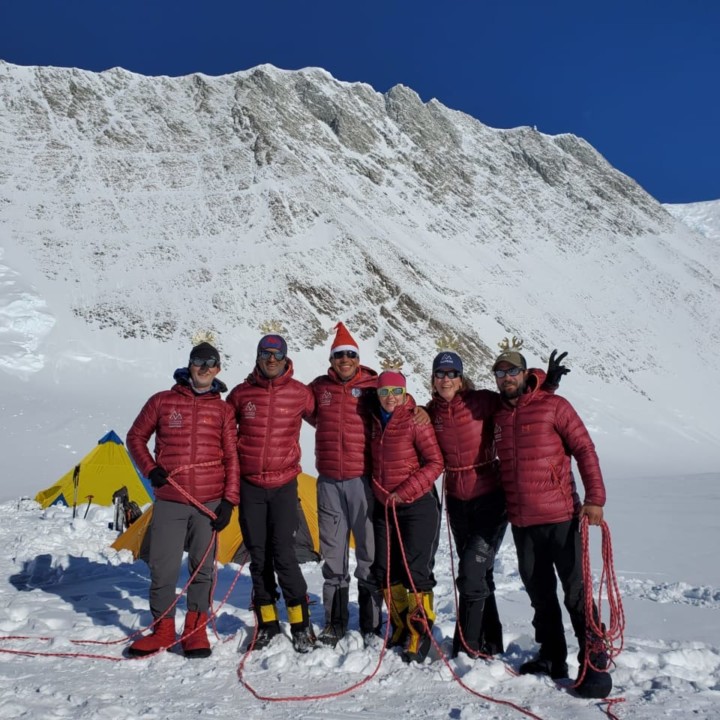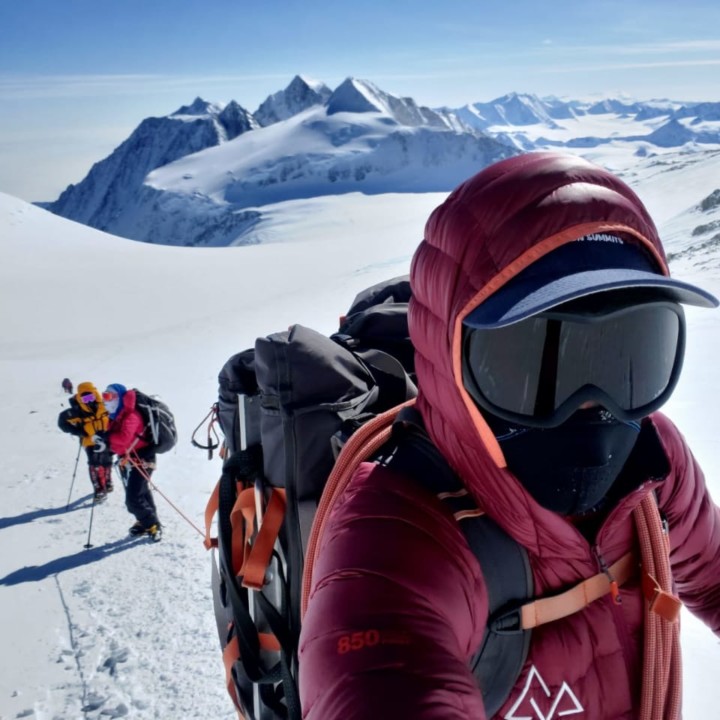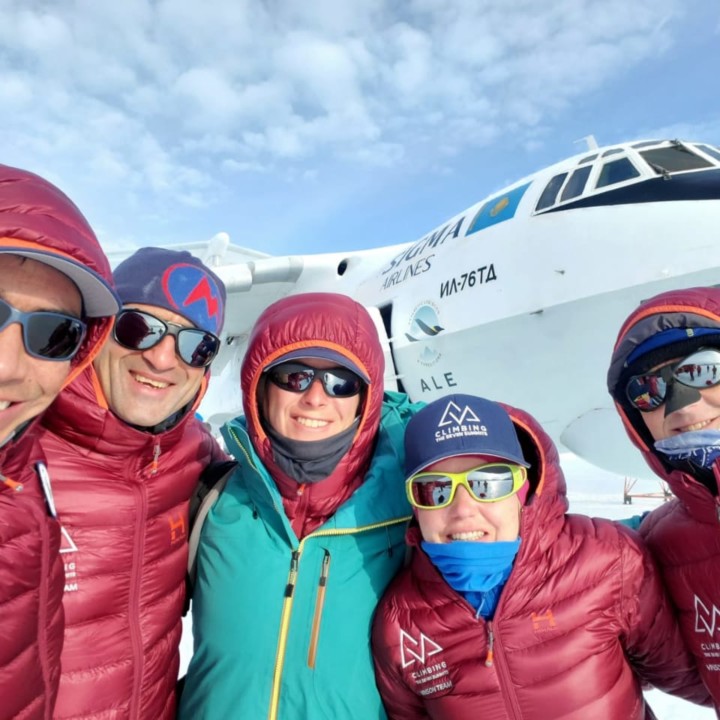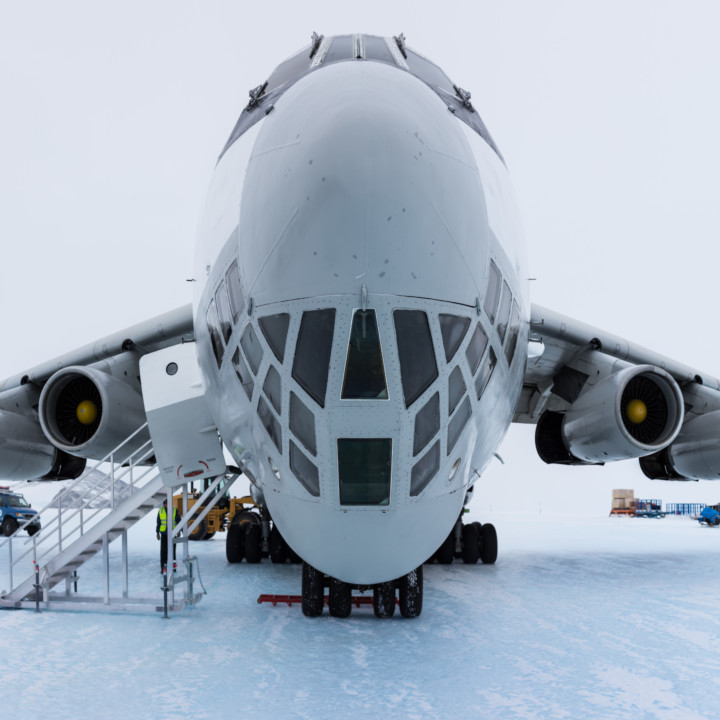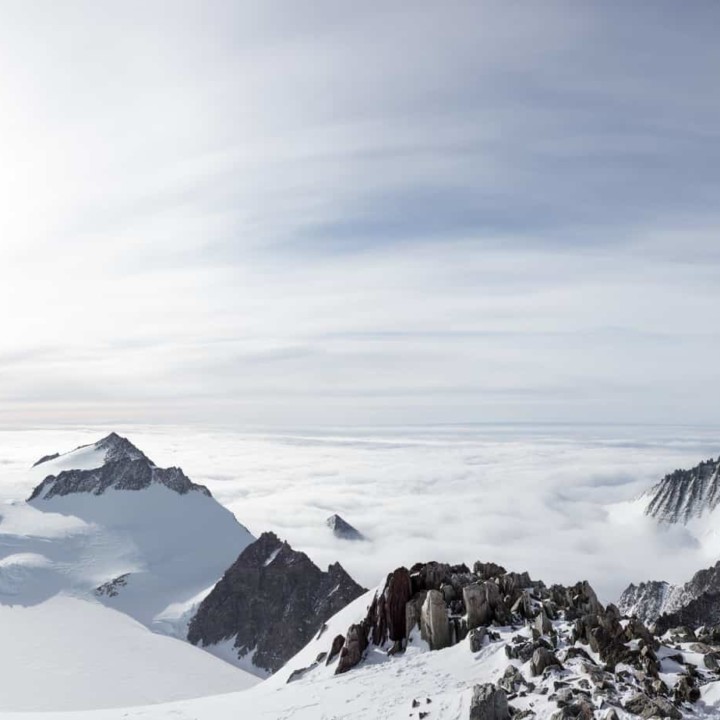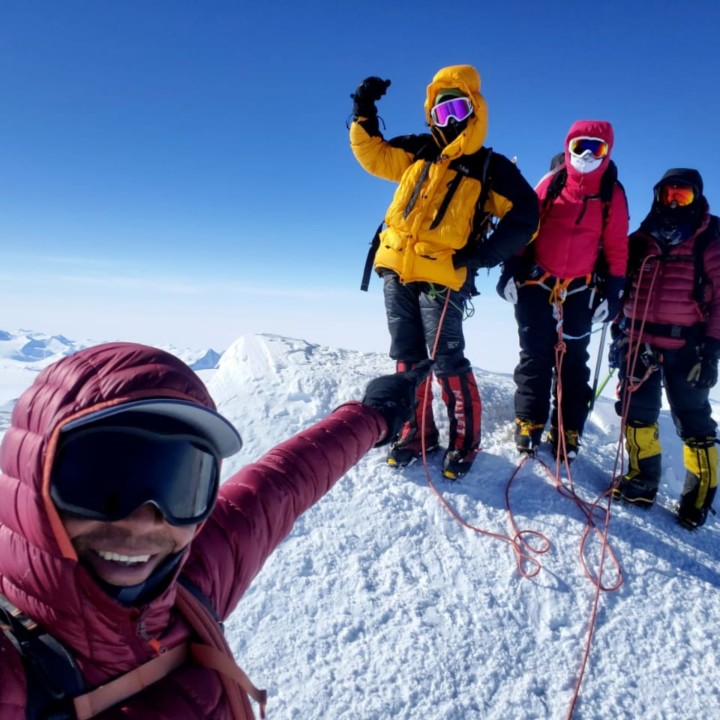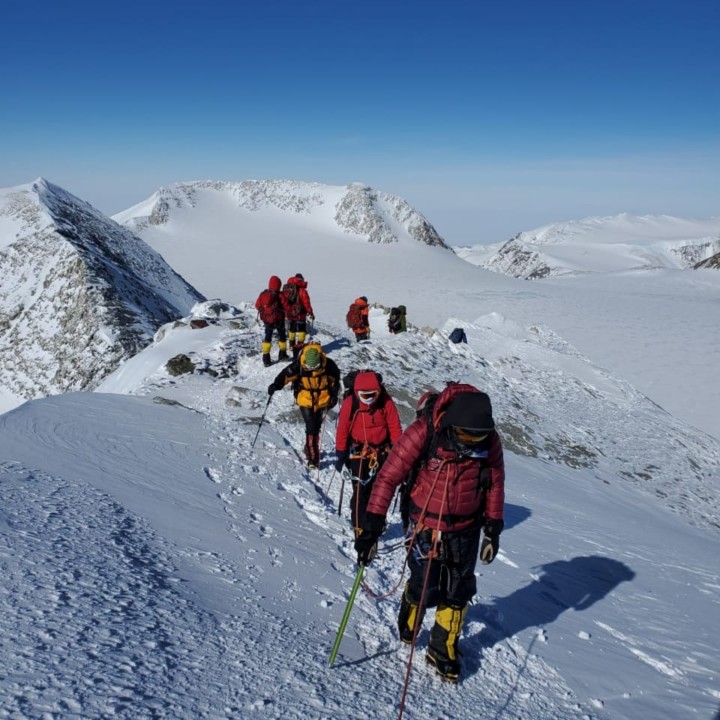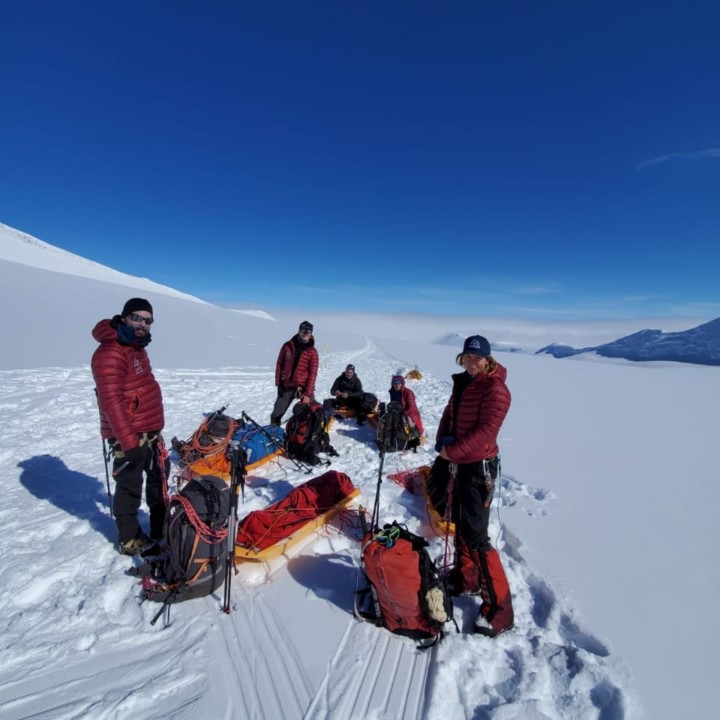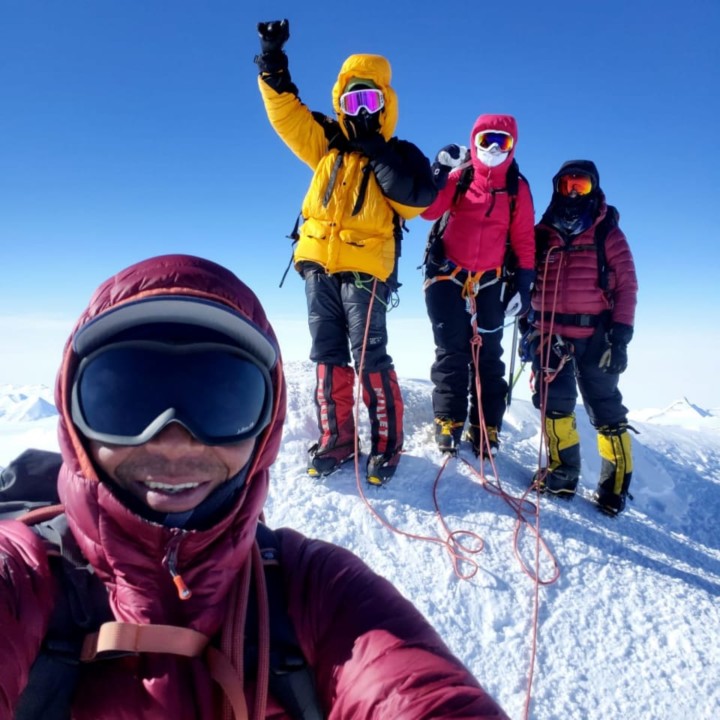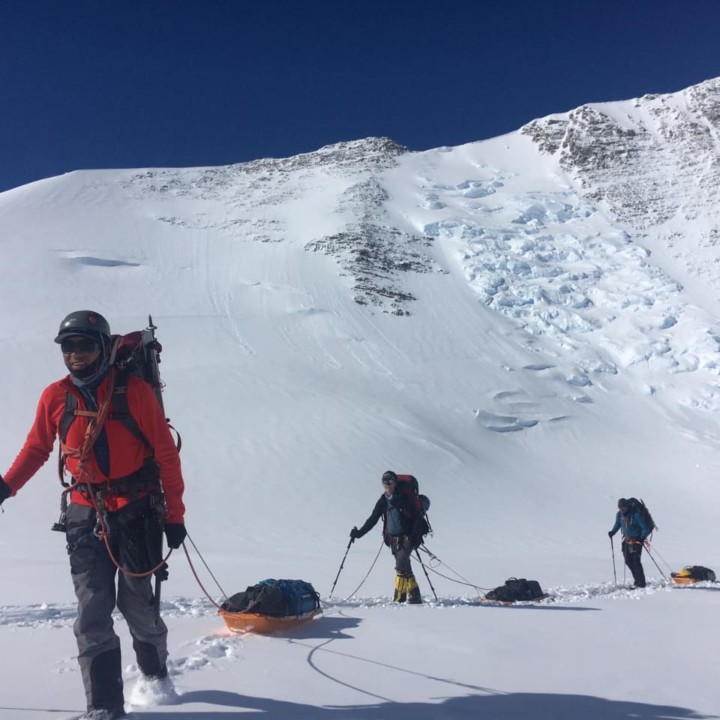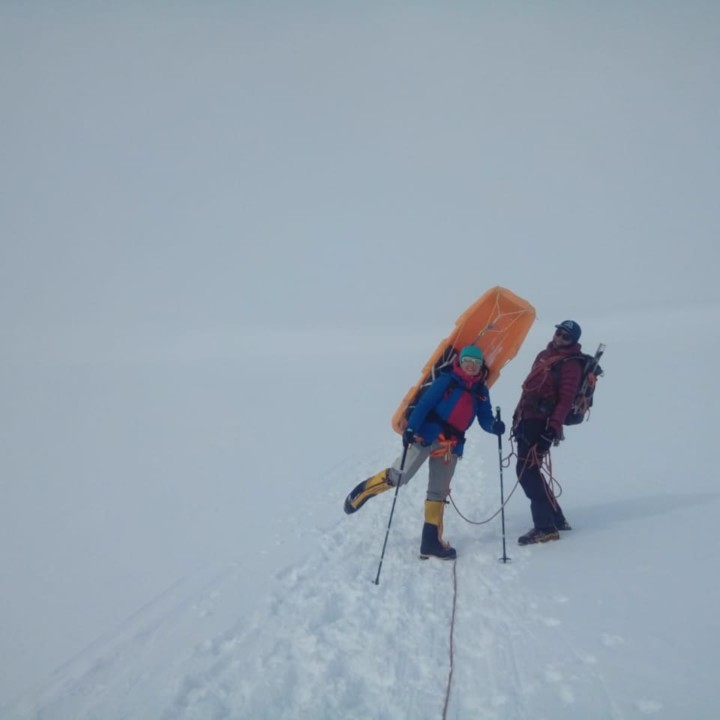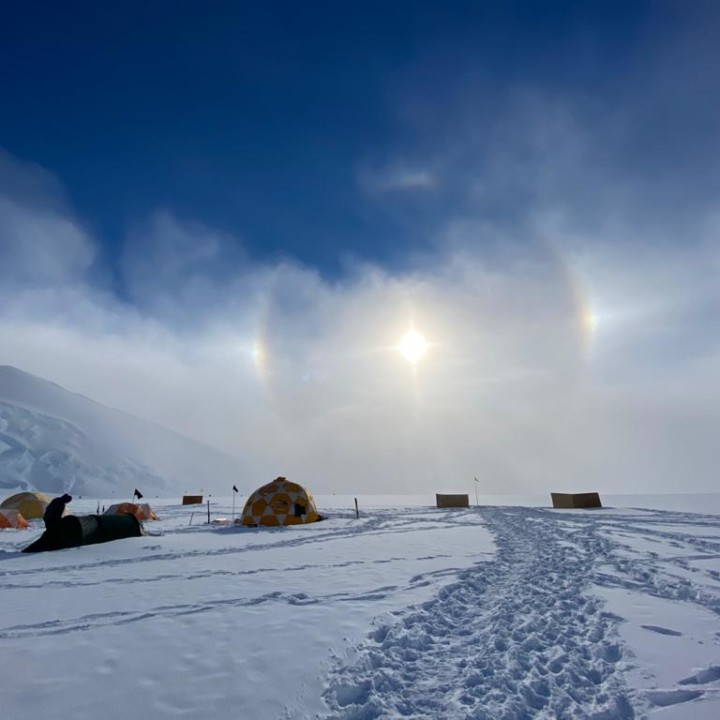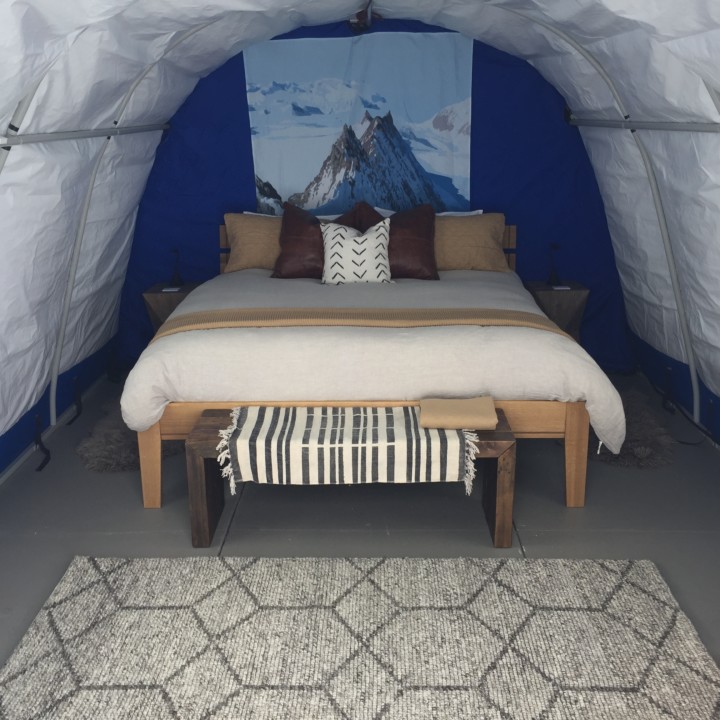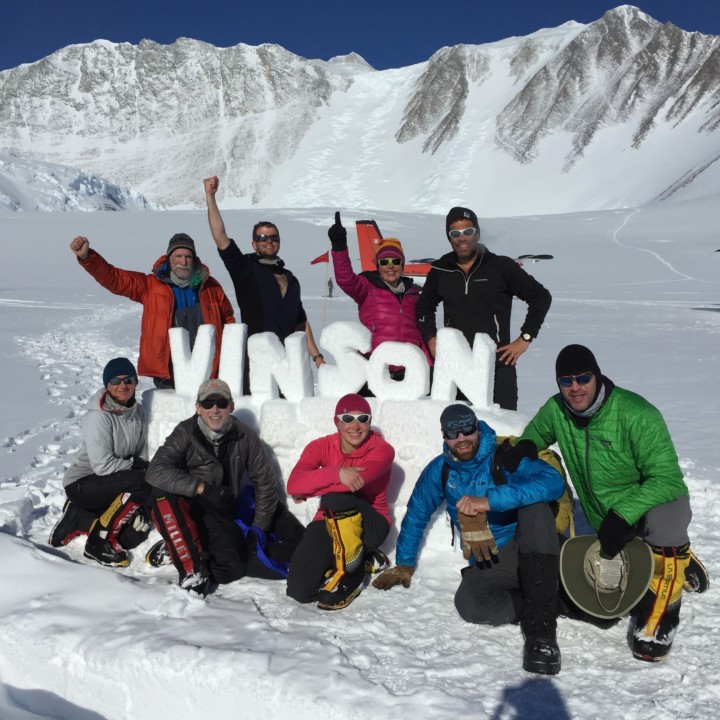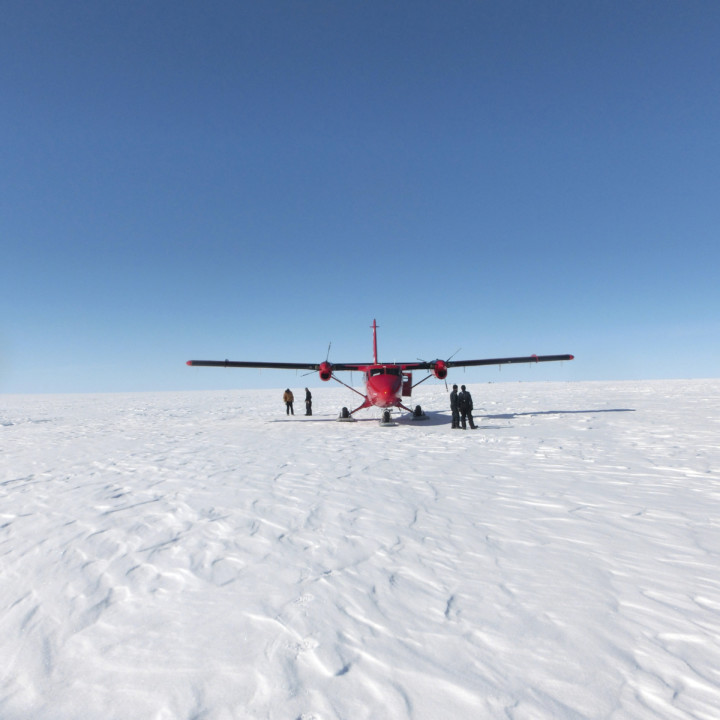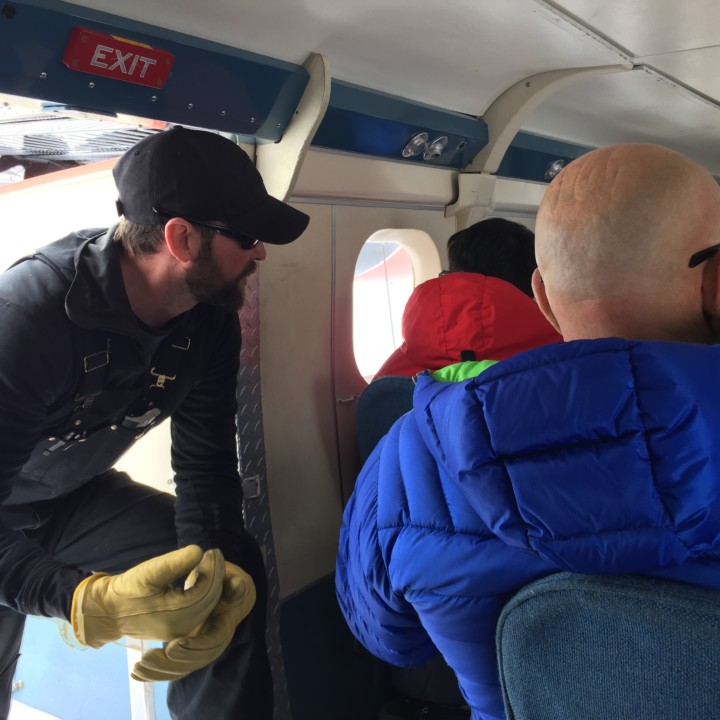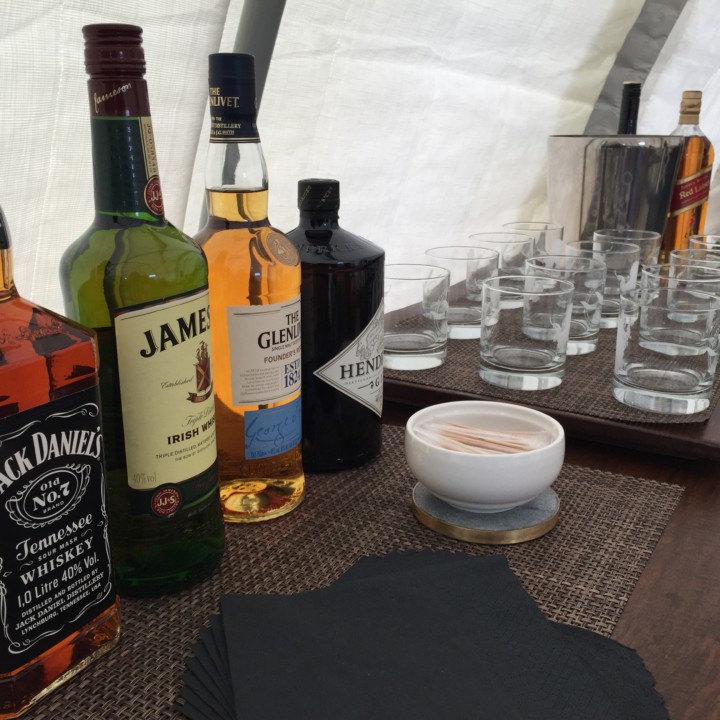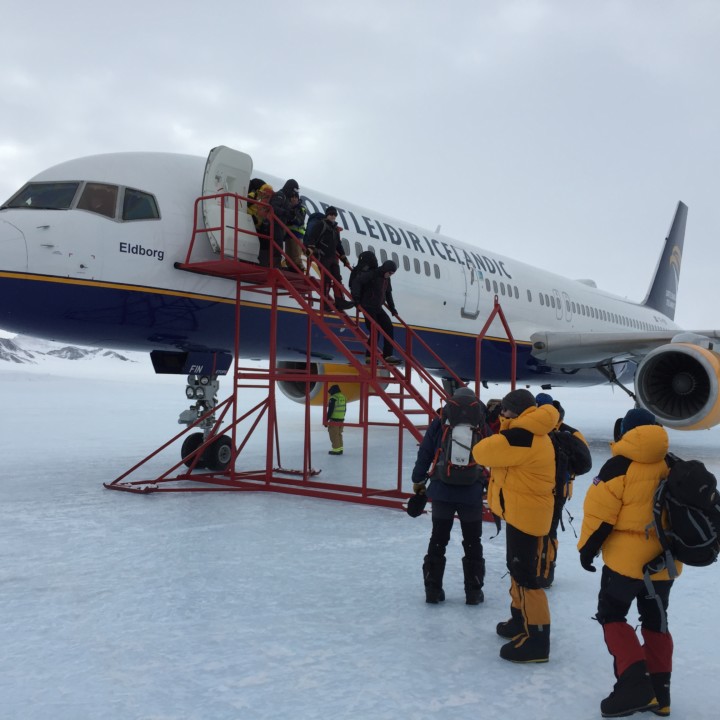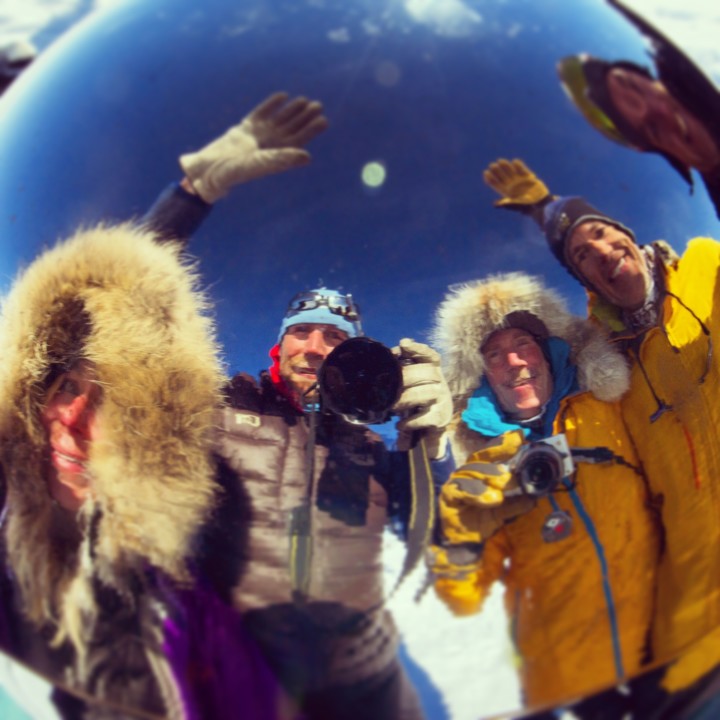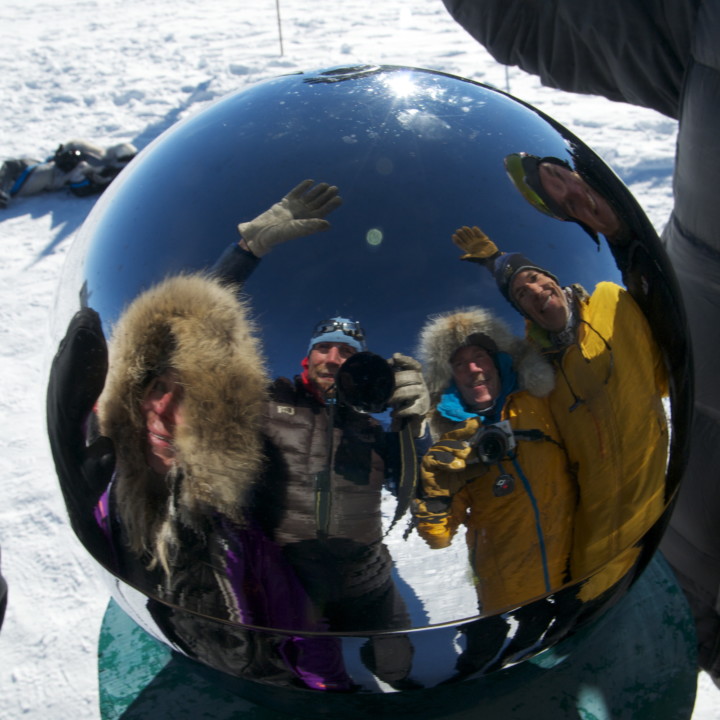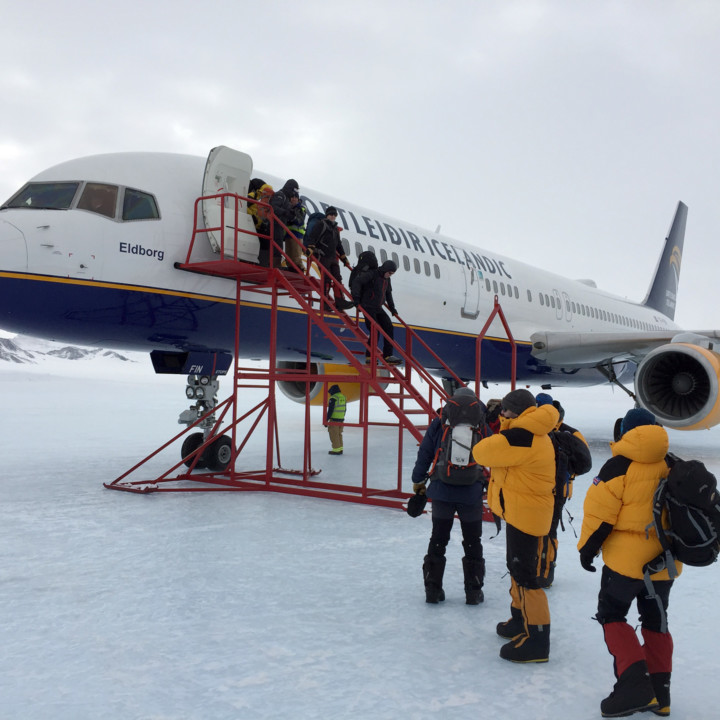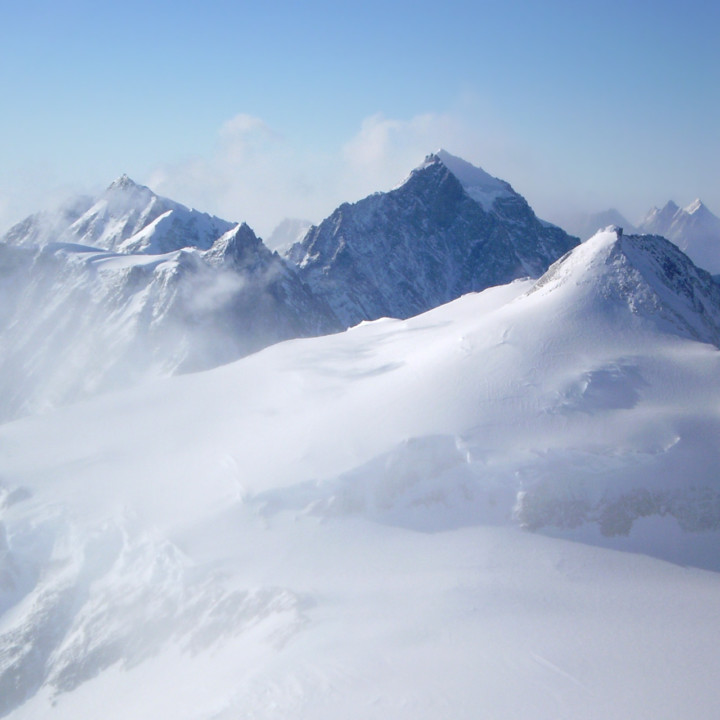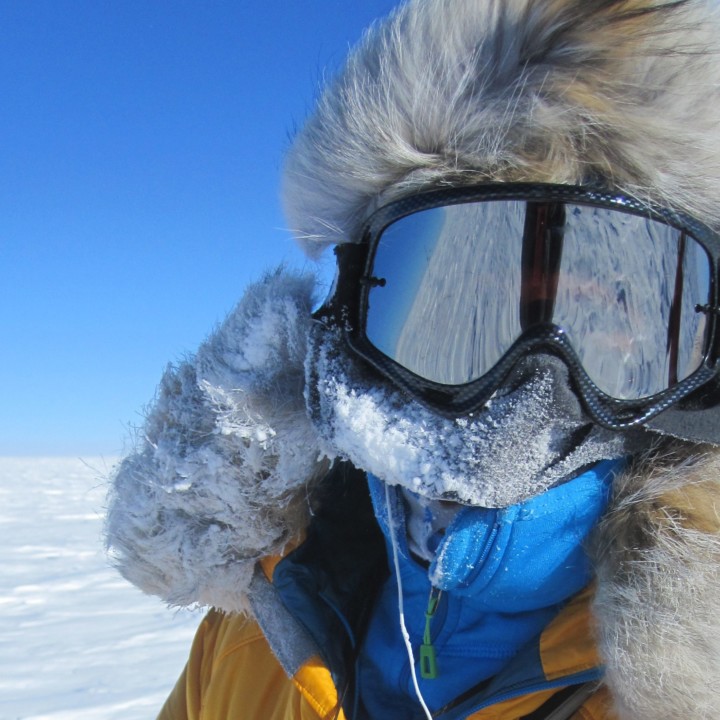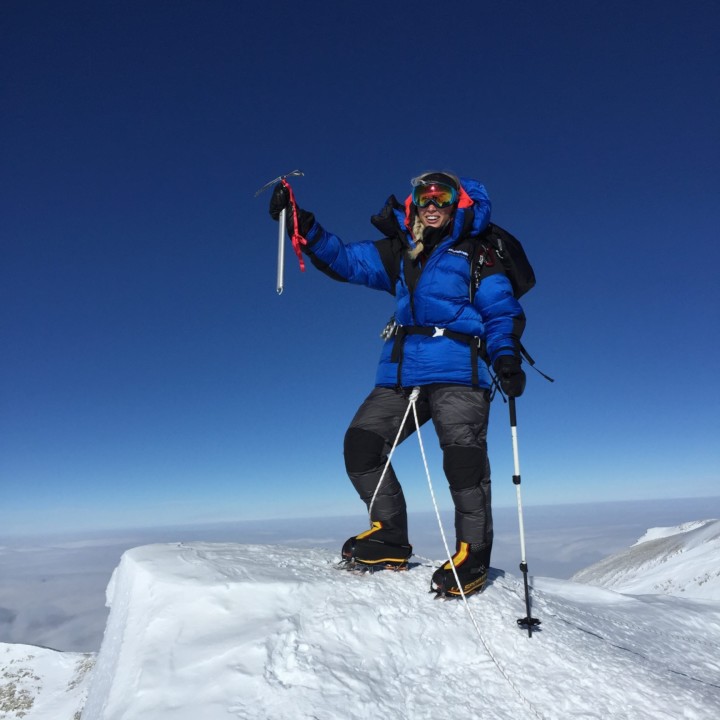VINSON MASSIF | Antarctica
Price Range:
$51,995 USD
Elevation:
16,050 feet
Duration:
16 days
Difficulty:
Advanced
Route:
Branscomb Shoulder Route
Share Expedition
Vinson Massif is one of the great mountains of the world. This expedition to the highest mountain in Antarctica and likely the coldest mountain in the world is a truly wild adventure. In fact, fewer people have summited Vinson than Mount Everest. This is because it lies deep in the heart of the mighty Ellsworth Mountains, and until recently, it was virtually inaccessible and a logistical nightmare to climb. It’s only in the last few decades that guided clients have been able to climb Vinson. It truly is an otherworldly experience and not one you will soon forget.
Antarctica is truly the last frontier. This virtually uninhabited, ice-covered continent is more than 5,405,400 square miles (14 million square kilometers) in size. As the fifth largest continent, it is comparable to all of the United States and Mexico or twice the size of Australia. The ice, which has accumulated over millions of years, covers approximately 97.6% of the continent and, on average, is about 3 miles deep. Because of this thick layer of ice, Antarctica has the distinction of being the highest continent in the world, and, to little surprise, it is also the coldest continent on Earth.
With only two seasons (summer and winter), Antarctica is also known for its 24 hours of sunlight during the summer months and 24 hours of darkness in the winter months. But one fact about this icy landscape that still manages to surprise even the most well-traveled adventurers is that Antarctica also takes the top spot for being the largest desert in the world due to its lack of precipitation on an annual basis. As a polar desert, the harsh winds and cold air hold less moisture, leading to incredibly low humidity and precipitation. On average, Antarctica sees about two inches of precipitation per year.
When you pair all of these extreme elements together with the fact that Antarctica has no government, no permanent population, is not ruled by any one country, and is the only continent without an indigenous population, it’s obvious why this is one of the greatest and most humbling expeditions for many mountaineers. The landmass of Antarctica is controlled under the Antarctic Treaty, which was signed in 1959 and in force as of 1962. Twelve countries signed the original treaty, and since then, they’ve established more than 55 Antarctic research stations across the continent.
Climbing the Seven Summits is committed to providing the highest-quality expeditions on Vinson Massif. You can be assured that it will be both challenging and fun, a true once-in-a-lifetime experience. As always, our professional priorities are safety and success, which we achieve by outfitting our teams with the best logistics and the most capable, qualified, and seasoned guides in the world.
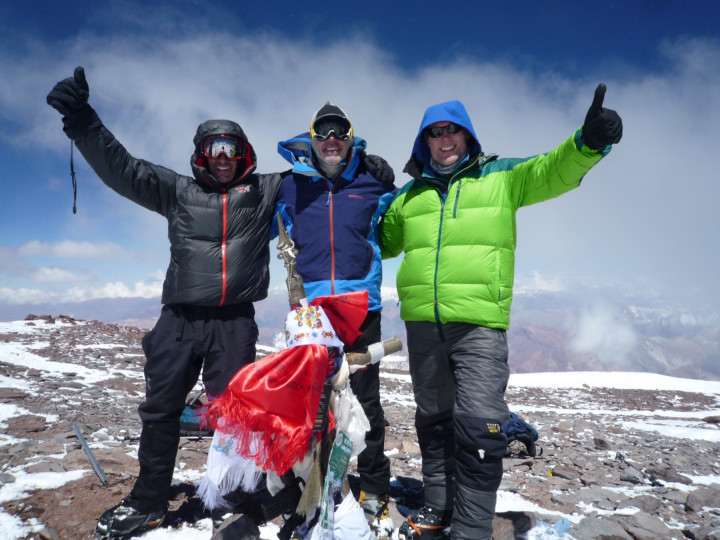
Highlights:
- At Vinson Base Camp, you can live in comparable luxury to the other outfitters. There, you will have insulated indoor dining facilities complete with tables and chairs.
- Take advantage of the warmer climbing temperatures and reduce the risk of frostbite by climbing more safely with our mid-season schedule.
- Experience the rush of landing on a blue ice runway in a Boeing 757 in the heart of Antarctica.
- Join the amazing community of climbers, skiers, researchers, and adventurers who pass through Union Glacier Camp.
- Peer out over the seemingly never-ending sea of ice from High Camp.
- Take in the view of the mighty and breathtaking Ellsworth Mountains from the summit of the tallest peak in Antarctica.
Choosing the Right Option
At CTSS, we offer a variety of different climb options to customize your Vinson experience to your climbing style and ability:
Allowing you to customize your expedition to suit your needs is a huge priority for us.
As mountaineers ourselves, we understand that it’s the little things that can make the difference. Comfortable, well-rested climbers are successful climbers, and climbers who have objectives that are suited to their skill level are happy climbers.
Vinson Gear Rentals
An expedition to Vinson Massif or the South Pole requires extreme and crucial reliance on your gear. CTSS highly recommends that you personally select, purchase, and test every piece of gear you bring to Antarctica. Relying on rental gear opens the increased possibility for gear failure in extreme conditions.
Any rental gear needed should be acquired before flying to Chile. CTSS cannot guarantee access to an open rental facility, nor the availability of items if we do find a rental location in Punta Arenas. Plan to address your gear needs completely prior to departure. We are happy to answer any gear questions you have as you prepare for your Vinson and Last Degree expeditions.
What other activities can I do while in Antarctica?
Join us for one of our add-on activities, or make it a two-mountain expedition:
- South Pole Last Degree Ski
- South Pole Flight & Overnight
- South Pole Flight
- Vinson + Mount Sidley Climb
- Vinson + Aconcagua Climb
What is a good fitness and training program for this climb?
- Climbing conditioning – pack-loaded uphill hiking, walking, and stair climbing
- Strength training – for the lower and upper body
- Cardiovascular training – including both aerobic and anaerobic workouts without pack weight
- Flexibility training
How do you get to the mountain?
The expedition meets in Punta Arenas, in the Patagonia region of southern Chile. From here we board a Boeing 757 to fly the 4.5 hours onto the ice in Antarctica.
We land on a naturally occurring blue ice runway at Union Glacier Camp before further organizing our gear, then board a smaller Twin Otter plane on skis that will take us to Vinson Base Camp (approximately a 45-minute flight) to begin the climb.
At the expedition’s completion, the process is reversed, with a plane flying into Vinson Base Camp to collect us and take us back to Union Glacier Camp, where we can fly back to Chile on the 757 and onward home from there.
Will I need to share a tent?
Yes, we will share tents both at Vinson Base Camp and on the mountain. This is due to the extreme cold, where sharing tents keeps everyone warmer and safer. It also reduces the weight of carrying extra, unnecessary tents when pack weights are already significant. Please plan to share a tent with one of your fellow climbers. If this is a concern for a valid reason, don’t hesitate to contact us to discuss it.
How cold will it be?
Very. Although temperatures during the day low on the mountain can get to 70°F, most of the time, they are well below freezing. Nighttime temperatures can be -40°F lower on the mountain, and summit temperatures can be from -20°F to -60°F, depending on the wind and how direct the sun is.
Please be prepared for extreme cold and be hyper-vigilant to avoid frostbite. Listen to your guide’s advice and speak up if you are feeling cold or numb.
How heavy will my pack be?
In general, climbing packs on Vinson are moderately heavy to quite heavy. Most of the time, you will likely be carrying 40 lbs—50 lbs (18kg—24kg), while on a few days, like the move to and descent from High Camp, you’ll carry closer to 50 lbs—65 lbs (24kg—30kg).
All the group gear is spread equally throughout the team. Like all our expeditions, there is a strict Leave No Trace policy, so it is best to bring only what you need and prepare your body in training to carry weight.
What size pack do I need?
We highly recommend bringing a 100L pack. Some people bring an 80L and then struggle to fit everything in during the descent from high camp, which is the only time we are not double-carrying. We find it easier to bring a 100L and have extra room.
What about gear and boots?
We highly recommend a down-filled top and bottom combo rather than a full down-filled suit. The combo is much more versatile and makes it easier to adjust the temperature. Once you put on the down suit, you are stuck in it for hours, if not the whole day, and may overheat. Vinson climbers are a lot more comfortable in a down-filled top and bottom combo.
We recommend triple boots such as the Scarpa Phantom 8000 or La Sportiva Olympus Mons. Something like the Baruntse with an overboot can work, too, but it is not ideal. The Baruntse alone would not be warm enough. You can find overboots through 40 Below, a company out of Graham, Washington. The drawback of overboots is that the fit isn’t as secure with crampons, you don’t have the same grip on the bottom of your boots when you have them on, and they can be difficult to put on. That said, some people use them for Vinson, and it is your choice.
What is the food like on the climb?
In general, our food on and off the mountain is excellent. There are many good restaurants in Punta Arenas that we will check out. At Union Glacier Camp, first-rate chefs will be preparing our food for us. On the mountain, the guides will be cooking large, hearty meals that are very tasty, albeit a bit more rustic than in town. Think eggs, pancakes, burgers, pasta and rice dishes, meat and vegetables, potato dishes, and even fish.
If you have dietary restrictions or requirements, please let us know well ahead of departure so that we can accommodate you.
We also ask that guests bring along some of their favorite snacks, as many people find they have a loss of appetite whilst at altitude and a preference for things they know they like. Make sure you pack plenty of goodies you are familiar with that will tempt you even when you don’t feel hungry.
High-energy gels or Gu Bloks are also recommended for summit days.
When should I get to Punta Arenas?
You need to be in Punta Arenas, Argentina, two days before we fly to Antarctica, but we suggest considering getting to Punta Arenas three days in advance in case of any baggage or flight delays. The extra night in town associated with arriving early would be your own expense but we can easily book the hotel for you if you like. It is better to be there early than to arrive late and risk missing the flight or not having your gear in time.
Should I expect big travel delays and weather holds?
Travel in Antarctica is unique, as are the weather patterns and the mountain range we climb. Our flight operator is the best in the business and well-versed in Antarctic air travel. Safety is everyone’s main priority, so they will not fly in marginal conditions or poor visibility. Weather delays can happen while we wait for clear windows to fly. They don’t always happen, but it’s worth noting that they can.
There are plenty of contingencies in place for this, with cached resources, food, fuel, and medical supplies in the event of lengthy delays at Vinson Base Camp and Union Glacier Camp. We ask that you be aware that delays can be a part of an Antarctic adventure and that you notify family and friends that in the event of a delay, this is not a situation to be concerned about.
As the saying goes, it’s better to be on the ground wishing you were in the sky rather than in the sky wishing you were on the ground. Safety is more important to us all than scheduling.
When should I book my return flight?
Most people book roundtrip flights up front with the return date being set back to a later date in case we get delayed. Weather in Antarctica is unique, and flights are dependent on good windows. Delays aren’t uncommon and should be expected. You may find yourself waiting for a flight on and off the continent as well as to and from the mountain. It is worth letting your family and workplace know this and not booking other commitments too close to your proposed return date, just in case.
We usually ask people to book a flexible fare and loosely book it for three days after the scheduled return date or so. If you are on time, we usually reschedule our flights home, knowing that there is lots of availability on flights from Punta Arenas, and it’s easy to get on a flight.
If you are returning early to Chile and don’t want to move your flight up, Patagonia is an incredible destination to explore, and it is worth exploring while you are in the region.
Will I need to purchase trip insurance?
Yes. Trip delay and cancellation, rescue, repatriation, and medical insurance are mandatory for this program for your own benefit. We have seen too many times when people need to cancel their trip either before or during the expedition for reasons such as injury, health, family, and business matters. With such a long trip and so much at stake, climbers need to be prepared for contingencies.
How can my family and friends reach me?
Mount Vinson and the South Pole are very remote, and the only means of communication is via satellite phone or device. Our expeditions are equipped with these, and depending on battery supply, clients can call home on a limited basis for an extra charge.
If your family needs to reach you for an urgent reason, we encourage them to contact the office via info@climbingthesevensummits.com, and they can contact us to pass on a message or arrange a phone call. We contact base with updates most days, which are published on our blog. The blog is a great news source for family and friends wanting to follow along. Please also advise your loved ones that no news is good news and help manage their expectations that they won’t necessarily hear updates every day or be able to contact you as easily as on other expeditions.
Didn't find an answer to your question? Don't hesitate to ask us.
Free Expert Advice
When you sign up for an expedition you become CTSS family.Which means a free expert consult with Mike Hamill - the man who literally wrote the book ‘Climbing the Seven Summits’ or one of his expert team.Personalised strategy, progression planning, expert coaching, insight and advice on how to get the most out of your climbing journey!
6x Reasons to Choose CTSS
Safety
Your safety and success are our priorities in that order. We make conservative decisions, plan redundancies and all our guides have wilderness medical training, safety & rescue plans & access to doctors 24/7 to help keep you safe.
Value for $
We keep our overheads low to pass savings on to you. We are proud to offer the best service for the most competitive price, without skimping on safety or taking shortcuts with logistics, staffing and infrastructure.
Holistic Approach
Our service goes far beyond the mountain. Think of us as your climbing coach, we’ll be there from start to finish to prepare, debrief and plan your progression as a mountaineer, whether your goal is a single summit or the Seven.
Guides & Team
Guides can make or break your climb. We hand pick the most qualified, tenured, tested and personable guides and Sherpa in the world. Owner and mountaineer Mike Hamill personally oversees the management of each expedition.
Our Values
We care about you, our people and the planet and we walk our talk by donating a percentage of every expedition to Tiger of the Snows fund which supports outdoor tourism workers all over the world and following strict Leave No Trace principles amongst other initiatives.
Success
We have an unparalleled summit success rate. How? We do it in a myriad of ways; like a great chef’s secret sauce, we've fine tuned the recipe over decades but most importantly, we believe in you & your ability to achieve your goals and are invested in putting you on top.
Ready to Progress?
Consider these expeditions
“I have climbed with CTSS on my past three expeditions. Mt Elbrus in 2019 and Aconcagua in 2020 and 2022. I want the total experience on an expedition, from the travel, the country, the people, the culture, and meeting like minded individuals. CTSS gets this and that is why I would highly recommend them for your next expedition.“
- Blaine C
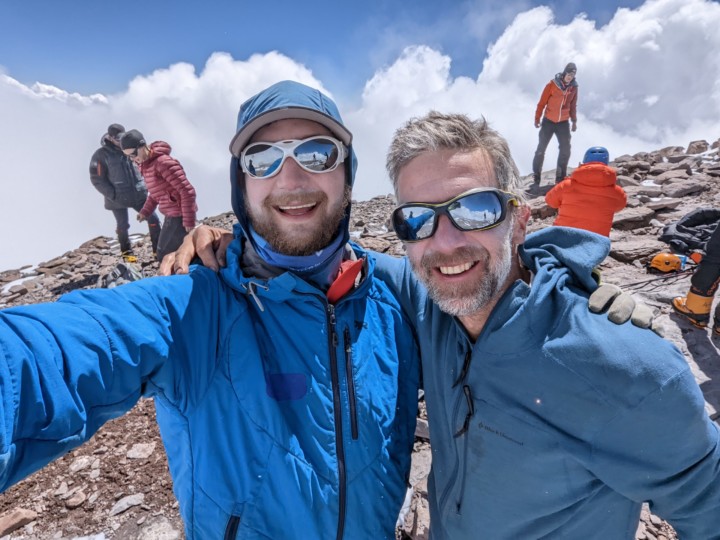
Testimonials
I cannot even put into words how incredible that trip was for me – you truly run everything top notch and it shows in every single part of the trip. Your patience in teaching/coaching in a way that I didn’t feel intimidated by was amazing and so so appreciated. I am in awe of this whole experienceJulie M, USA
An incredible experience from start to finish. I can’t say enough what a difference it makes to have a great guide who cares so much about the whole experience and a great time to make the journey so special. I hope this is the first of many climbs with CTSS for me.Kevin A, USA
As expected you run a first class show from start to finish… I look forward to the next adventure.Len F, USA
